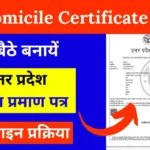Introduction
We, at LegalMate, understand the complexities freelancers face regarding GST registration. This comprehensive guide aims to provide detailed information tailored to freelancers in India.
Understanding GST for Freelancers
GST, or Goods and Services Tax, is a significant tax reform in India that impacts freelancers as well. It applies to the supply of goods and services across the country. Freelancers, depending on their activities, may need to register for GST.
Categories of Freelancers
Freelancers encompass a diverse range of professions, including:
- Consultants
- Content Creators
- Digital Marketers
- Graphic Designers
- Web Developers
Top Freelancer Platforms for Finding Work
- Upwork
- Freelancer
- Fiverr
- Guru
- Toptal
- PeoplePerHour
- 99designs
- FreelanceWriting.com
- FlexJobs
- SimplyHired
- Eligibility and Exemptions
Turnover and Export Exemption
Freelancers whose aggregate turnover is below ₹20 lakhs are exempt from GST registration. However, those involved in exporting services must still file GST returns to demonstrate their earnings.
GST Rates for Freelancers
The GST rate for most services provided by freelancers is 18%. However, specific services may fall under different GST slabs, such as 5% or 12%.
How to Calculate GST for Freelancers
To calculate GST for freelancers, use the formula:
GST Amount = (Invoice Amount * GST Rate) / 100
Necessity of GST for Freelancers
GST registration is essential for freelancers meeting the turnover criteria or engaging in interstate supply of services. It enables them to claim input tax credit and comply with tax regulations.
GST Rules for Freelancers in India
Invoicing Requirements
Freelancers must issue GST-compliant invoices containing details like GSTIN, invoice number, and tax amount.
Filing Returns
File GST returns regularly based on turnover to avoid penalties. Quarterly returns are applicable for freelancers with turnover up to ₹1.5 crores, while monthly returns are required for higher turnovers.
Input Tax Credit
Registered freelancers can claim input tax credit on goods and services purchased for business purposes, reducing overall tax liability.
Penalty for Non-Registration
Freelancers failing to register for GST despite being eligible may face penalties. The penalty can be a percentage of tax payable or a specific amount prescribed by authorities.
GST Exemptions for Exporter Freelancers
Every Indian Freelancer who exports their service need to register under Goods and Services Tax. It is mandatory to comply with the GST Laws. Exporter freelancers enjoy certain exemptions and benefits under GST:
- Zero-rated Supplies: Exporter freelancers can supply services at zero GST rate for exports, ensuring competitiveness in the global market.
- Input Tax Credit: They can claim input tax credit on inputs used for exports, reducing tax liabilities and enhancing profitability.

How to Register GST with LegalMate
Consultation
Contact LegalMate for expert guidance on GST registration requirements and procedures for freelancers.
Documentation
Prepare necessary documents such as PAN card, Aadhaar card, bank details, business address proof, and photographs.
Online Application
LegalMate will assist in filling out the GST registration form accurately and uploading required documents on the GST portal.
Verification and GSTIN Allocation
LegalMate ensures your application is verified promptly, and upon approval, you’ll receive your GST Identification Number (GSTIN) and registration certificate.
Partner with LegalMate Today
Join the ranks of satisfied freelancers who have benefited from LegalMate‘s seamless GST registration services. Focus on what you do best while we handle the rest.
Conclusion
In conclusion, GST registration is crucial for freelancers to comply with tax laws, claim benefits, and expand their business opportunities. Partnering with LegalMate simplifies the registration process and ensures seamless compliance.





